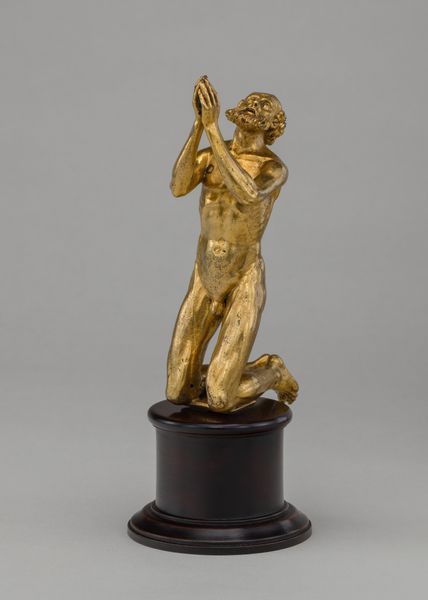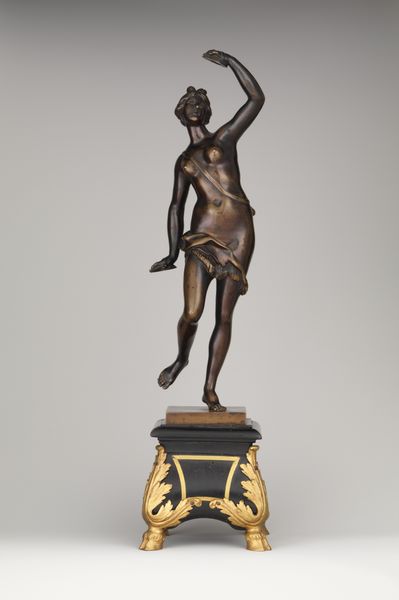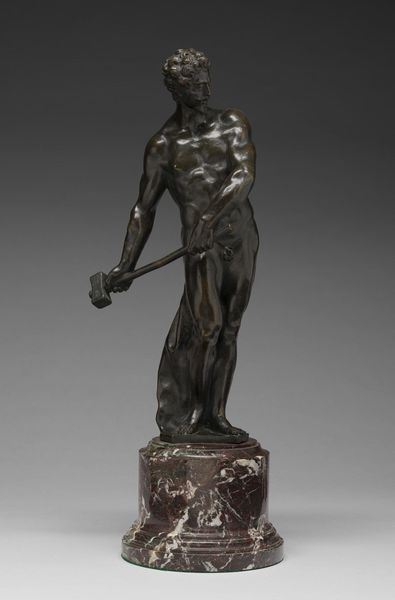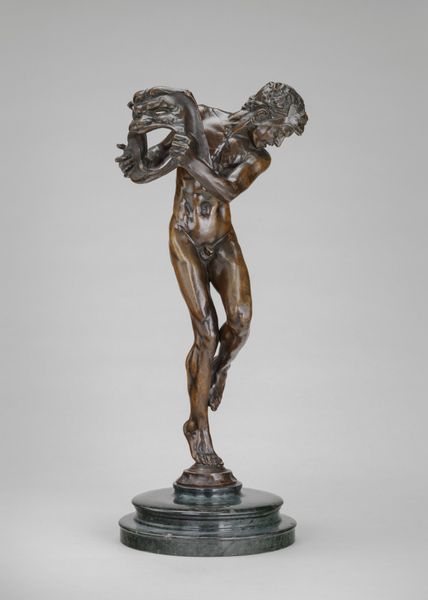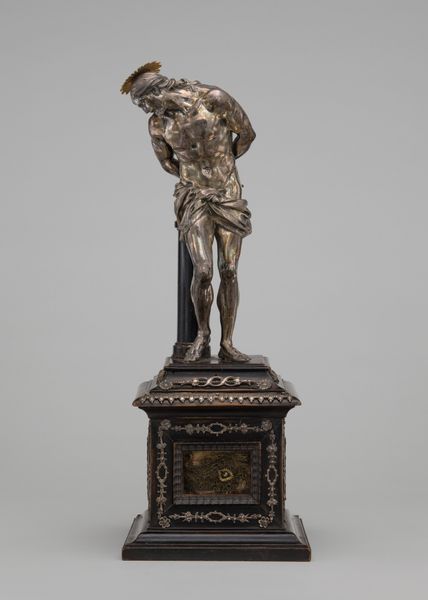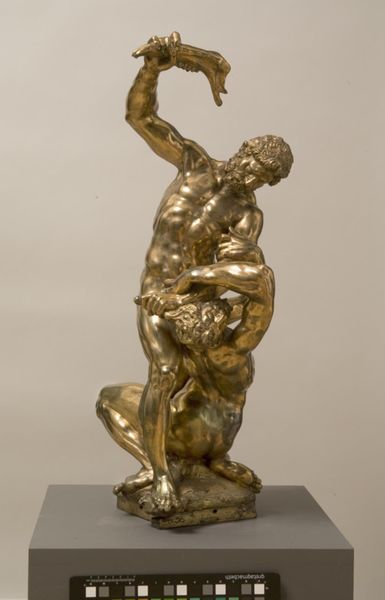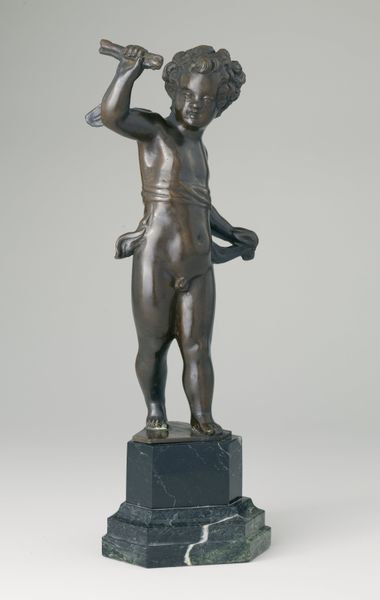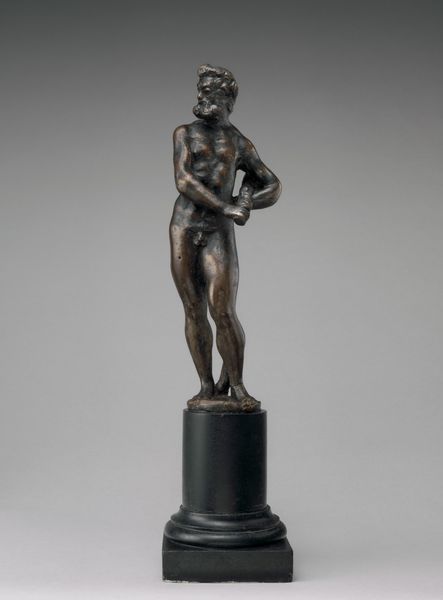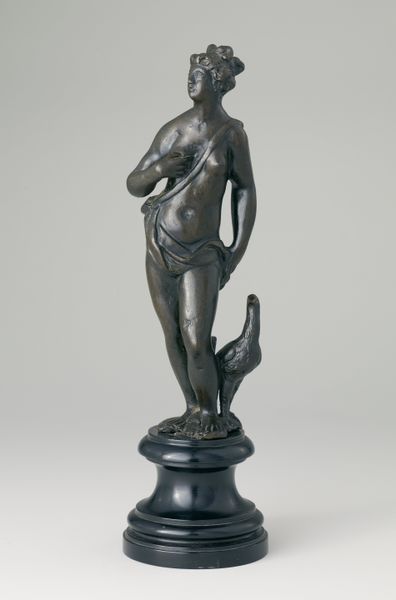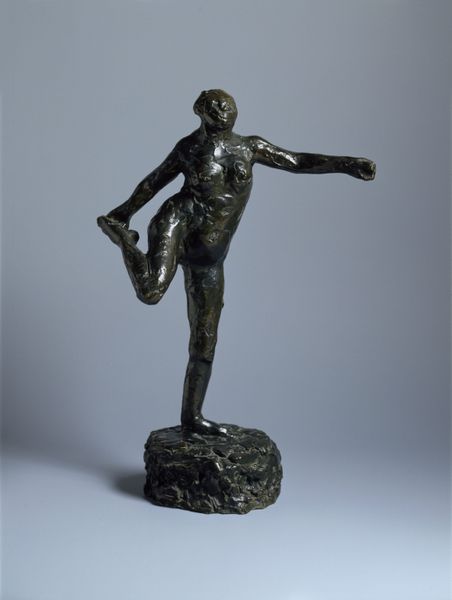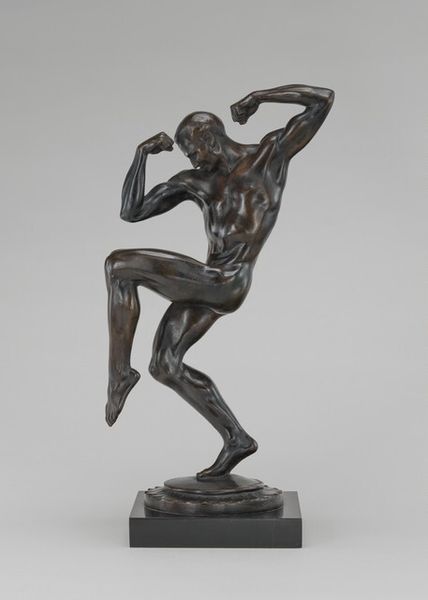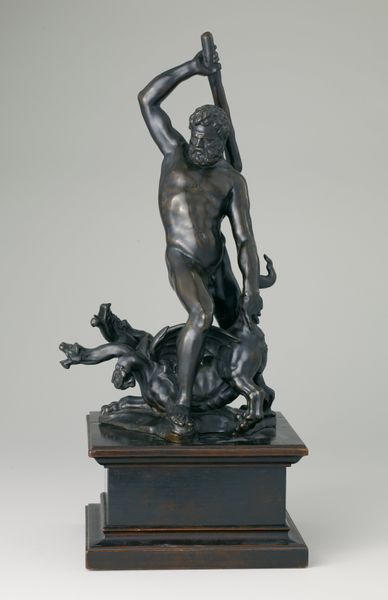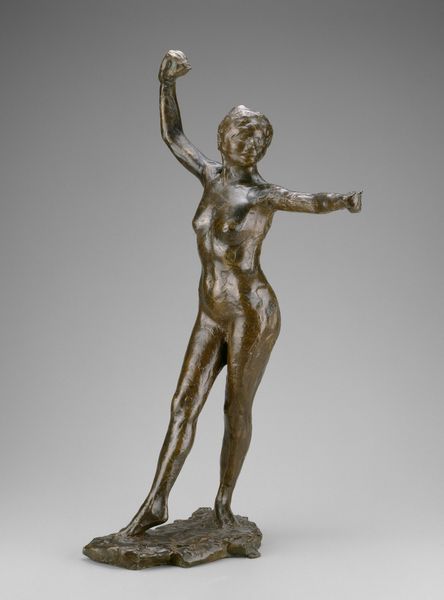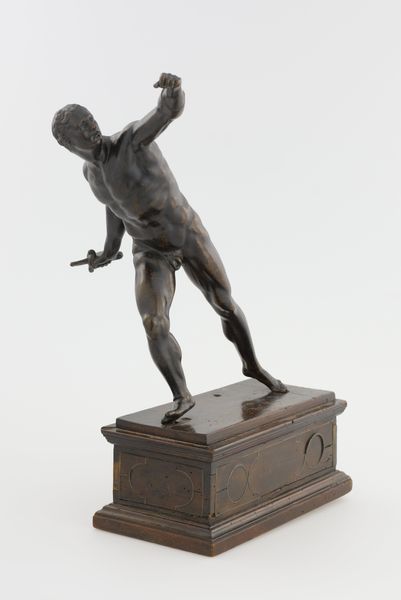
bronze, sculpture
#
portrait
#
bronze
#
figuration
#
11_renaissance
#
sculpture
#
history-painting
#
nude
Copyright: Public Domain
Curator: Here we have a small bronze sculpture entitled "Hercules," dating back to the early 16th century. The artist is, unfortunately, unknown. What are your initial thoughts? Editor: There's a contained ferocity to it. It’s the power of a legend, shrunken down and captured. You feel his potential strength rather than seeing it actively displayed. Curator: Absolutely. I think that restraint is interesting given how Hercules was deployed in visual propaganda. Powerful families loved aligning themselves with his myth. Can you see a symbolic purpose behind this figure? Editor: Oh, definitely. Hercules is a ready-made symbol for virtues desired by the elites of the time – strength, virtue, triumph over adversity. But it's not just about muscle; it's the wisdom and the labor to bring order to chaos. Who exactly, then, was the intended audience or patron for this small sculpture? Was it intended to reinforce their values or suggest they saw themselves reflected in him? Curator: It’s likely for private display. While the symbolism could align the owner with Herulean virtues, it's far more subtle. Thinkers would place similar symbolic meanings in gems, architecture or rituals. It works in much the same way; it's about encoding cultural values in tangible objects. In what other ways do you see it acting symbolically? Editor: Well, the material itself – bronze – speaks to permanence and value, setting Hercules apart, almost mythologizing him within the very artwork. Also, that downward gaze feels… weighted with a sort of introspective solemnity. It evokes thoughtfulness which subverts the classic heroic iconography. The hero must understand his deeds; a critical self-assessment that is equally, if not more, valuable than strength. Curator: An insightful perspective on how this statue portrays heroism. It avoids easy spectacle in favor of quiet potency. This Hercules has an interior life that, I agree, gives him enduring resonance. It certainly speaks to the skill of the anonymous artist. Editor: Indeed, that contemplative quality offers us a glimpse into how Renaissance audiences engaged with classical ideals – not merely imitating, but reflecting and interrogating. Thank you for guiding me through those insights. Curator: It was my pleasure to share that space of reflection with you, bringing a contemporary eye to these enduring stories is so important.
Comments
No comments
Be the first to comment and join the conversation on the ultimate creative platform.
